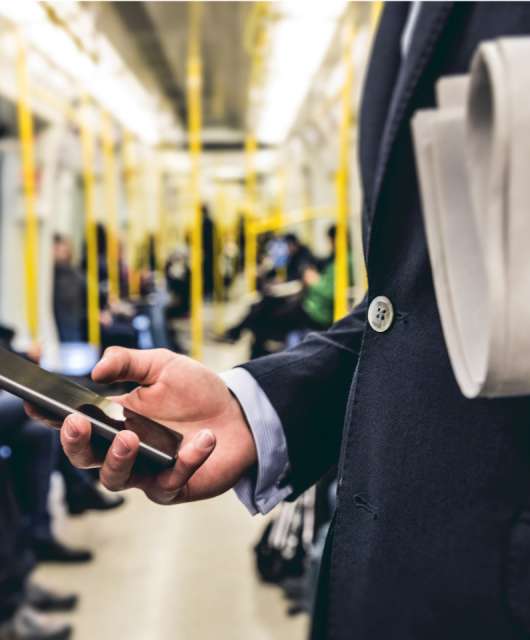In today’s digital world, securing your online accounts has never been more crucial. As we become more connected, we expose ourselves to cyber risks that could compromise our personal information and financial security. From email to social media to banking, every account needs protection. In this comprehensive guide, we’ll explore essential steps to securing your online accounts and keeping your data safe from cybercriminals.
How to secure your online accounts for keeping your data safe from cybercriminals
What are Online Accounts?
Online accounts refer to the profiles and services we use on the internet, ranging from email and social media to e-commerce and financial services. These accounts often store personal information, making them a prime target for cybercriminals.
Common Threats to Online Accounts
As our lives move increasingly online, securing our accounts becomes essential for protecting our privacy, financial details, and personal identity. Breaches can lead to data theft, identity fraud, and financial loss, emphasising the need for robust security practices.
These are the most common threats your accounts are exposed to
- Phishing: Fraudulent attempts to obtain sensitive information, such as passwords, by disguising as a trustworthy entity.
- Brute Force Attacks: Hackers repeatedly try different password combinations to access an account.
- Malware: Malicious software designed to steal information or cause harm.
- Account Takeover: Cybercriminals gain access to an account and use it for fraudulent purposes.
How can I protect my online accounts?
Creating Strong Passwords
A strong password is the first line of defence against unauthorised access. Weak passwords make it easier for cybercriminals to break into your accounts, putting your personal data at risk.
Tips for Creating Secure Passwords
- Length and Complexity: Use at least 12 characters, mixing letters, numbers, and symbols.
- Avoid Predictability: Avoid using easily guessed words like “password” or your name.
- Use Different Passwords: Don’t reuse the same password across multiple accounts.
- Regular Updates: Change your passwords periodically to maintain security.
ALSO READ: How to Make Strong Passwords: Best Internet Safety Practices
Two-Factor Authentication (2FA)
Two-factor authentication (2FA) adds an extra layer of security to your account by requiring two forms of verification: something you know (your password) and something you have (like a smartphone).
Setting Up 2FA for Different Accounts
Many services offer 2FA, from email providers to social media platforms. It’s usually found in the security settings of your account. Set up 2FA on key accounts such as Google, Facebook, and financial services for stronger protection.
Recognising Phishing Attempts
Phishing is an attempt to trick you into sharing sensitive information by pretending to be a legitimate entity. This can happen through emails, messages, or fake websites.
How to Identify Phishing Emails and Websites
- Suspicious Sender: Check the email address for slight variations.
- Urgency: Phishing attempts often create a sense of urgency, urging you to act fast.
- Misspellings and Errors: Many phishing attempts contain poor grammar and misspellings.
- Hover Over Links: Before clicking on a link, hover over it to check if it leads to a legitimate website.
Using Secure Networks
Public Wi-Fi networks are inherently insecure, and hackers can easily intercept your data. When you connect to public networks, you expose your device to potential cyber threats.
Best Practices for Secure Network Usage
- Use a VPN: A Virtual Private Network (VPN) encrypts your data, providing a secure connection.
- Disable Auto-Connect: Prevent your device from automatically connecting to public networks.
- Avoid Sensitive Transactions: Don’t access banking or financial accounts on public Wi-Fi.
Securing Social Media Accounts
Social media platforms are often targeted by hackers due to the personal information stored on these accounts. From impersonation to hijacking, social media accounts are vulnerable if not properly secured.
Steps to Secure Facebook, Twitter, etc.
- Use Strong Passwords and 2FA: Ensure your accounts are protected with robust security measures.
- Limit Personal Information: Don’t overshare details like your home address or phone number.
- Review Privacy Settings: Regularly review and adjust privacy settings to control who sees your information.
ALSO READ: Why should you make your social media profiles private?
Protecting Financial Accounts
Financial accounts, including online banking and payment services, are highly valuable to hackers. Securing these accounts is critical to protecting your money and personal financial information.
Security Measures for Online Banking
- Enable 2FA: Most banks offer two-factor authentication for an extra layer of security.
- Monitor Transactions: Regularly check your bank statements for any suspicious activity.
- Use a Dedicated Device: If possible, access your financial accounts only from a personal, secure device.
ALSO READ: Is online banking safe? How to use online banking apps
Safe Online Shopping Practices
Shopping online can expose you to risks like fraudulent websites, data breaches, and credit card theft. It’s essential to take precautions when entering payment details online.
Tips for Secure Online Shopping
- Use Trusted Websites: Only shop on reputable, well-known sites.
- Look for HTTPS: Ensure the website’s URL begins with “https” for a secure connection.
- Use Virtual Credit Cards: Consider using virtual or disposable credit cards for online transactions.
Data Backup and Encryption
Backing up your data ensures that even if your accounts are compromised, you won’t lose important information. Regular backups protect your data from threats like ransomware and accidental deletion.
Encrypting Sensitive Information
Encryption scrambles your data, making it unreadable to anyone who doesn’t have the decryption key. Encrypt sensitive files and use encrypted messaging apps to keep your communications private.
Using Password Managers
Password managers generate and store complex passwords for your accounts, so you don’t have to remember them. They help you maintain strong, unique passwords across multiple platforms. You can use Panda Dome Passwords!
Updating Software Regularly
Outdated software can have security vulnerabilities that hackers exploit. Keeping your software up-to-date ensures you have the latest security patches to protect against cyber threats.
How to Keep Software Updated
Enable Automatic Updates: Set your operating system and apps to update automatically.
Check for Updates Manually: Regularly check for updates if automatic updates aren’t available.
PANDA TIP: Remember that Panda Dome Premium includes a unique update manager so you can always keep your devices and accounts up to date.
Monitoring Account Activity
It’s important to regularly monitor your accounts for any unusual activity, such as unrecognised logins or transactions. Catching these signs early can prevent further damage.
Educating Family Members
If family members aren’t aware of the risks, their accounts could be an easy target for hackers, compromising your entire household’s security.
Teaching Online Security to Children and Elders
- Children: Teach them to create strong passwords, avoid sharing personal details, and recognise phishing attempts.
- Elders: Help them set up 2FA and secure their devices with strong passwords or PINs.
What should I do if my account has been hacked?
Immediate Actions When a Breach Occurs
If you suspect your account has been compromised, take action immediately. Change your passwords and revoke access to unauthorised devices.
Steps to Recover Hacked Accounts
- Contact the Service Provider: Many platforms offer recovery options for compromised accounts.
- Enable 2FA: After recovering your account, enable two-factor authentication to prevent future attacks.
Recap of Key Security Measures
Securing your online accounts requires a combination of strong passwords, two-factor authentication, awareness of phishing attempts, and regular software updates. By following these steps, you can significantly reduce the risk of cyber threats.
The digital world can be dangerous, but with the right precautions, you can protect your personal information and online accounts from threats. Stay vigilant, update your security measures, and educate those around you to create a safer online environment.







